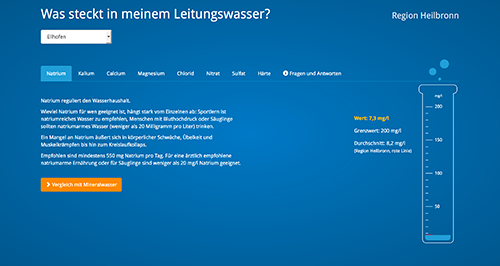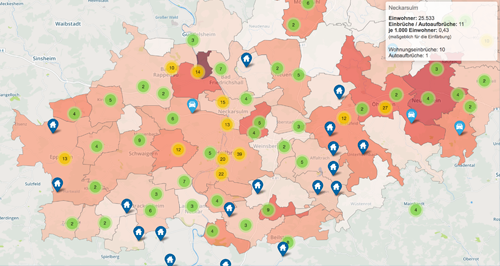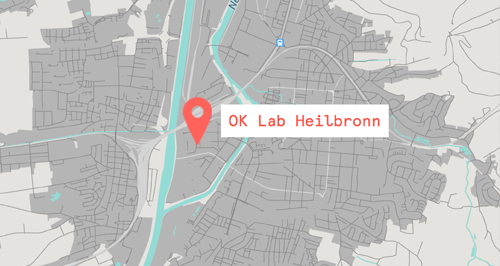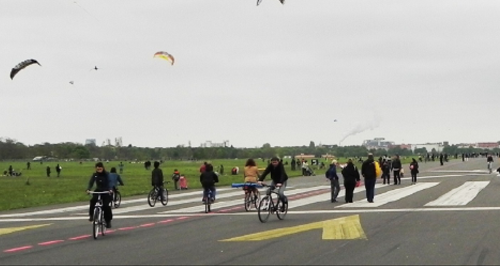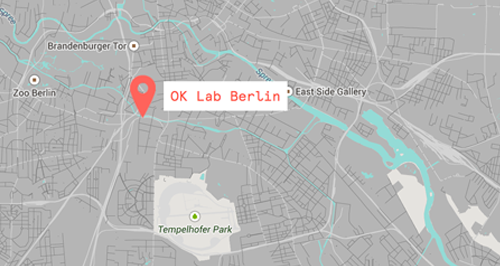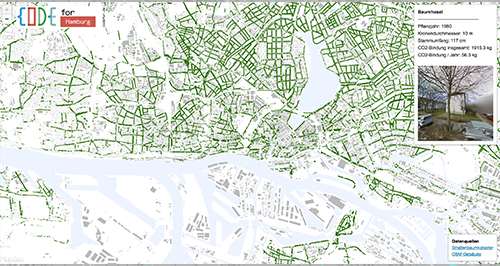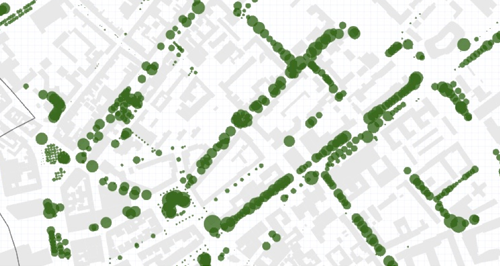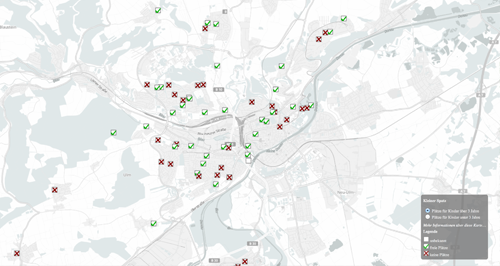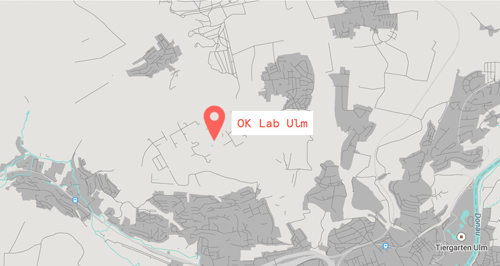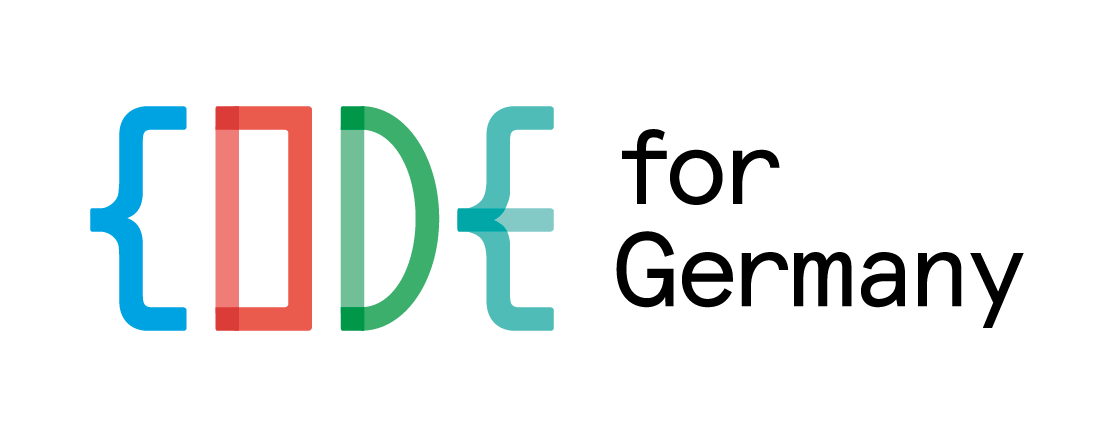
2014
Annual Report
Building communities
for data driven innovation
and civic tech in Germany.
Our community
explores the possibilities
of technology in urban life,
and demonstrates the usefulness
of open data.
HIGHLIGHTS
Heilbronn – A small city with a great Lab
Drinking tap water is quite popular in Germany, therefore this OK Lab decided to build an app that analyzes and shares the quality of local water. In close cooperation with the local administration, they managed to open the local water data and combined it with already accessible information. To spread the word about the project they collaborated with a local newspaper and launched a “What´s in my tap water?” campaign.Not only is the site very informative, providing a breakdown of water contamination and minerals, but it also includes visuals and charts. This user-friendly app has proven to be a great product to share because it clearly depicts the usefulness and relevance of Open Data, and is a very effective “door opener” for discussions with city officials who might be unclear on the benefits of civic tech.
Another great app-idea by OK Lab Heilbronn was to visualize the statistics on theft in their region, mostly in order to compare it over time and report on the seemingly rapid growth of incidents. The local police department opened up the data for the Lab, and since then the application Crime Map has been featured in several articles in the local press.
Although Heilbronn is one of the smallest cities in the program, the community is very active and well connected to city government and the local press. The OK Lab in Heilbronn has been working on a variety of topics that are directly linked to everyday life of citizens.
Berlin – Ideas and projects from the capital
One of the projects deals with the planned modification of the big city park “Tempelhofer Feld” which used to be an airport, and has been converted into a giant open field that is being used by numerous citizens as a recreational area. There were plans to convert the space once again, but these plans were opened up to public debate in a referendum. Stefan, a member of OK Lab Berlin, saw an opportunity here and thought of a way to help citizens comprehend what changes are being planned for the Tempelhofer Feld, in order to enable them to make an informed decision. A team from a local newspaper joined the effort and supported Stefan and helped him build an application that would represent the pending plan ideas in 3D form. The result was a beautiful and helpful visualization that was published on the newspaper’s website prior to the referendum, to prepare and inform citizens before their vote. In part because of the collaboration with the newspaper, the project received a lot of publicity and attention from the public and got an extremely positive response.
The OK Lab Heilbronn was inspired by this idea, and is now planning to build a similar application for the upcoming BUGA, the National Garden Exhibition, to depict the building plans that are in the works.
The OK Lab in Berlin has an active membership pool of approximately twenty people, with many more people visiting the OK Lab from time to time. Several of the apps that are being worked on focus on city planning and urban development, in part because Berlin is such a booming and ever-evolving city.
Hamburg – Data journalism and urban planning
Every day governments gather massive amounts of data, about everything from building safety to restaurant cleanliness.
There have been very active applications such as mappable.info and Data Driven Journalism Hamburg. They invite both journalists and civic hackers to their meet-ups, and generally 20 people come together and meet every two weeks to uncover new journalism stories and to build tools for their city. OK Lab Hamburg is very well connected with its city officials, possibly due to the fact that the city of Hamburg was the first city in Germany to introduce a Transparency Law. As a result, all public datasets were required by law to be opened beginning in autumn 2014, which will give this OK Lab plenty of resources to keep a high momentum. Since February this OK Lab has been working on a variety of visualizations and projects. Their main focus is on geospatial data and topics like gentrification. One of the Lab’s latest projects is a map that shows how trees in public spaces contribute to air quality in Hamburg. For the map they used data from the city’s tree database to display tree types and their CO2 levels. But visualizing the data is just a first step as the data allows for much more. This Lab is also planning build another related/integrated app that outlines the pollen level in specific areas, and offers mechanisms to adopt a tree in your neighbourhood.
The initial impetus behind forming an OK Lab in Hamburg came from a group of open data experts whose focus is on the visualization of data and data journalism.
Ulm – A lab well connected to the city
When Code for Germany launched, the group decided to join the program to connect better with like-minded people all across Germany and share their knowledge and experience in the field. In the past few years the group has been working on several interesting applications. Thanks to the innovative and open minded mayor of Ulm they never run out of data. They are in close contact with city officials, who provide them with first hand information and data.
One of their latest projects is a digital nursery school finder called “Kleiner Spatz”. Finding a place at nursery school is a prevalent problem in German cities. Places are scarce and parents have to be quick. This is why the team in Ulm built a map that helps parents spot free places and provides them with the contact details of the nursery school. The map uses data of the city and is updated on a monthly basis. The group is currently in touch with the city to get access to an API, so that information on the nursery schools can be updated in real time. Ulm's Kleiner Spatz project has inspired a lot of other OK Labs, Hamburg and Dresden are currently working on redeploying the project.
Ulm has a quite active open data community. A group of students from the technical university in Ulm started an open data group called “Ulm API” a couple of years ago.
THE OK LABS
13 OK Labs in cities
all over Germany.
From Hamburg
to Munich.
WE ARE A COMMUNITY
Code for Germany is an active network of volunteer developers, designers and engaged citizens who meet in cities all over Germany to build digital tools and visualizations that help to improve their neighborhoods and cities. Since the kickoff in February the community has contributed over 5000 hours of coding. They help citizens find nursery school spots for their kids, inform about construction in neighborhoods, help check and compare the quality of the local drinking water and many more.
The community explores the possibilities of technology to improve urban life, and shows what's possible with open data. This creates an incentive for governments not just to open up their data but also to rethink the way in which they govern.
We are part of an international network - Code for All - a platform for sharing what works and what doesn’t, scaling innovation virally, and replicating technology around the world.
13
LABS
50
APPS and PROTOTYPES
>200
VOLUNTEERS
>10.000
HOURS OF CODING
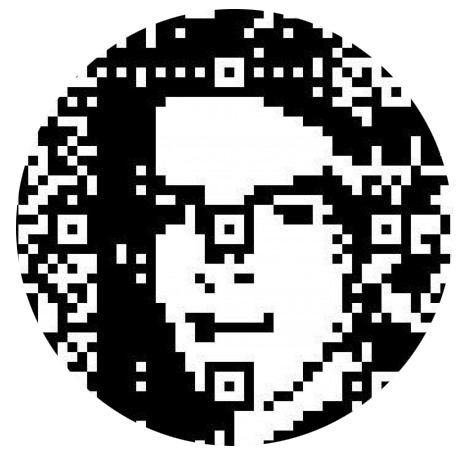
“Political representatives and editors of the local newspaper join our meetings on a regular basis to exchange ideas and to stimulate cooperation. This helps us to find out what topics the city is busy with and what related applications we could build."
Felix Ebert
OK Lab Heilbronn
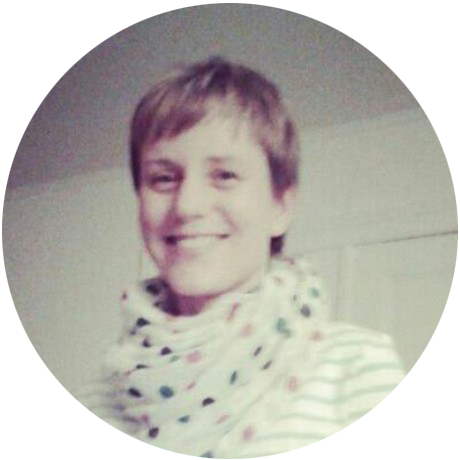
“I want to work in public service to make the world a little bit more transparent, to encourage citizens to work together with government, and to get citizens more involved in democratic processes and our daily life.”
Magdalena Noffke
OK Lab Berlin
THE MODULES
MODULE 1: The Open Knowledge Labs
Spring 2014 saw the implementation of the first program module: the network of Open Knowledge Labs (OK Labs), inspired in part by Code for America’s Brigade program. In a growing number of cities across Germany, CfG began offering individuals a focal point to meet and network, building a local open data community where like-minded people could create innovative web or mobile solutions for their own city.
OK Labs either use the data the city already provides (open government data), or help the city to release more open data. The OK Lab network in Germany also aims to connect Labs across the country so that ideas and applications can be recycled and re-purposed. OK Labs alone attract around 200 people to meetups on a regular basis and at the time this was written there are 13 Labs throughout Germany. While the OK Labs are only loosely coupled, a healthy amount of exchange of ideas and code happens between them.

MODULE 2: Peers and Partners Network
In this context, it became apparent that a similar networking approach as with the Labs could enable peers from across cities to partner up and also build political coalitions to further the government innovation landscape in Germany. The idea of the Peers and Partners Network not only to be a hands-on online and offline cooperation network for best-practice sharing and the like, but we also hope to support an emerging policial alliance that stands by public commitments to civic tech and open government. Thus, we aim for re-mix of the CfA Peer Network and the Open Governemnt Partnership - for cities.
MODULE 3: The Incubator
We want to systematically support potential new businesses created by the apps and APIs that emerge across the program. In this module, the core value of code availability and re-use that is integral to all other modules is combined with analysis, so that promising apps can flourish into viable business models. In this manner, the Incubator module would help teams take their app and api designs to build them into full-blown products that can gain investment and funding opportunities. The goal for this module is to strengthen Germany’s civic-tech ecosystem by establishing startups and social enterprises around open data and respective open source apps. The first incubator will be kicked off in Berlin in 2015 in partnership with the Technology Foundation Berlin.
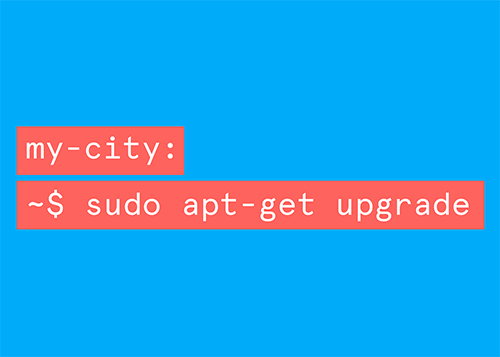
MODULE 4: The Fellowship
With the other modules well established over time and with some track record to show, CfG aims to also implement a fellowship program.
TEAM/Board
- Julia Kloiber – Project Lead OK Labs
- Fiona Krakenbuerger – Project Assistant
- Daniel Dietrich – Project Lead Incubator
- Marcus Dapp – Project Lead Peers and Partners Network
ADVISORY BOARD
- Gesche Joost
- Lars Hinrichs
- Nicolas Zimmer
- Jan Lehnardt
- Geraldine de Bastion
- Beate Lohmann
- Franz-Reinhard Habbel
- Ibrahim Evsan
- Wieland Holfelder
- Lena-Sophie Mueller
- Michelle Thorne
- Pavel Richter
- Marianne Wulff
- Björn Niehaves
